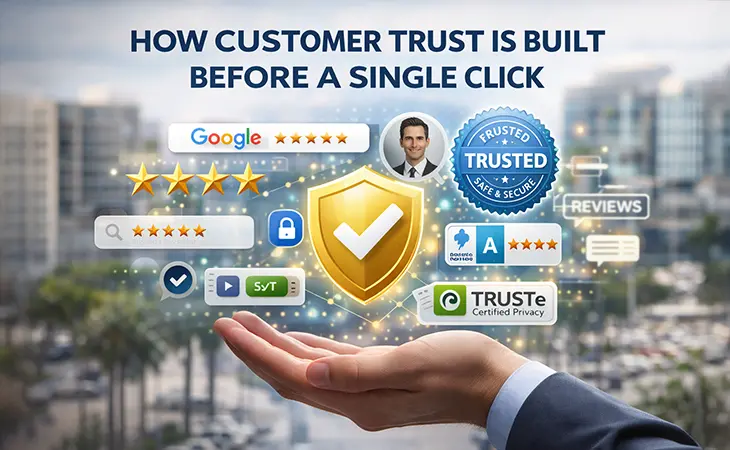Your Story Is Your Superpower
In today’s nonstop digital world, where every scroll is a pitch and every click is a distraction, the brands that break through are the ones leveraging their unique story to connect. Not with gimmicks, but with truth. Your story – flaws, pivots, and all – isn’t just part of your brand. It is the brand. And when you learn the power of leveraging your unique story to connect with your audience, everything changes. Because done right?
Your story doesn’t just make people like you.
It makes them believe in you.
Unlocking the Power of Your Personal Narrative
Benefits of Sharing Your Unique Story in Business
1. Building Authenticity and Trust with Your Audience
Authenticity is the currency of the modern marketplace. When you share your personal narrative, you reveal the human side of your brand. Take, for instance, the story of a small business owner who started their journey in their grandmother’s kitchen. By sharing this heartfelt origin, they create a relatable bond with customers. According to research, 90% of consumers are more likely to trust a brand that shares personal stories (source). By opening up, you foster transparency and reliability in an age marked by skepticism.
2. Enhancing Emotional Connections and Engagement
Stories resonate on a deeper level than facts alone. Think about the tale of a non-profit organization that shares the journey of individuals they’ve helped. By illustrating real-life transformations, they evoke strong emotional responses, compelling audiences to engage with their mission. Emotional connections not only enhance engagement but also boost customer loyalty -people are more inclined to support brands that align with their values and experiences.
3. Differentiating You from Competitors in the Market
In a sea of similar offerings, your unique story can serve as a beacon that sets you apart. Imagine a tech startup that prides itself on its founder’s journey from a small town to Silicon Valley. By weaving this narrative into their branding, they carve out a niche that competitors may struggle to replicate. This differentiation is crucial, as 86% of consumers say that authenticity is important when deciding what brands they like and support (source).
4. Creating Shareable Content
A compelling narrative can be a goldmine for shareable content. When you weave your story into your marketing campaigns-be it through blogs, videos, or social media posts -you provide audience members with relatable material they feel motivated to share. This organic sharing can exponentially increase your reach, creating a ripple effect that brings new customers to your doorstep.
5. Inspiring Action and Advocacy
When you invite your audience into your world through storytelling, you can inspire them to take action. For instance, a fitness influencer who shares their personal struggles and victories can motivate others to embark on their wellness journeys. This inspired action can lead to word-of-mouth advocacy, where fans become vocal supporters and champions of your brand, driving more organic growth.
6. Establishing a Community
Finally, storytelling can help you build a community around your brand. When customers relate to your narrative, they feel part of something bigger. Consider a local café that shares regular stories about its farmers and suppliers; customers become invested in these relationships, turning casual customers into a loyal community that supports not just the café but also the people behind it.
Potential Drawbacks of Storytelling in Marketing
1. Risk of Oversharing or Losing Professionalism
While authenticity is key, there is a fine line between sharing and oversharing. A business that divulges too much personal information risks appearing unprofessional or even uncomfortable to potential customers. For instance, a financial advisor who shares deeply personal struggles related to money may inadvertently alienate clients who expect a more polished, expert approach. Striking the right balance is essential to maintain credibility in your field.
2. May Not Resonate with Every Audience Segment
Not every story will resonate with every audience. For example, a luxury brand sharing a humble origin story may confuse consumers who expect exclusivity and sophistication. It’s important to understand your target market; crafting a narrative that aligns with their values and preferences ensures that your story echoes positively. Sometimes less is more, and knowing when to dial it back can be a powerful strategy.
3. Requires Time and Effort to Craft the Perfect Narrative
Creating a compelling narrative demands a significant investment of time and effort. Researching your audience, refining your story, and ensuring it aligns with your brand vision can be a daunting task. Many businesses fall into the trap of hurriedly throwing together a narrative, leading to inconsistencies that can damage their brand image. A well-thought-out story, however, is worth the effort, as it lays a strong foundation for enduring engagement.
4. Potential Misinterpretation
Stories are subjective and can be interpreted in various ways. A story that resonates with one audience segment may be misunderstood by another. For instance, a brand aiming to highlight resilience could inadvertently come off as insensitive if not careful about how they frame their story. It’s essential to test your narrative with diverse groups to anticipate different interpretations and reactions.
5. Changes in Audience Expectations
As markets evolve, so do consumer expectations. What resonated with your audience in the past may no longer hold their attention in a fast-paced digital world. Brands need to be agile and willing to adapt their narratives to keep up with changing trends and consumer preferences. Staying relevant means continuously evolving your story while retaining its core essence.
6. Risk of Clichés and Overused Narratives
In a world filled with stories, clichés can emerge, leading to a decrease in impact. Consumers are savvy and can quickly detect when a narrative feels contrived or overused. A story that appears formulaic can diminish trust and authenticity, making it crucial to cultivate a unique angle that captures attention. Investing in creativity can help you avoid falling into the trap of tired tropes.
Leveraging your unique story can be a game-changer in connecting and converting your audience. By building authenticity, fostering emotional connections, and differentiating yourself from competitors, your narrative can create a lasting impact. However, it’s vital to be aware of the potential pitfalls, from oversharing to misinterpretation. With careful crafting, your personal narrative can not only resonate with your audience but also cultivate a community of loyal advocates. So why wait? Start sharing your story today and watch as connections blossom and conversions rise.
Storytelling Converts: Here’s Why
Leveraging your unique story to connect isn’t just a branding move, it’s a conversion tool.
Because when people feel connected, they trust you.
When they trust you, they buy.
And the best part?
Your competitors can copy your layout, your color scheme, even your services.
But they can’t copy your story.
Final Thoughts
So, if your website feels “meh” or your content’s falling flat, the fix might not be more keywords or better graphics.
It might just be you.
Start sharing your story. Not the polished version. The real one.
That’s what gets remembered. That’s what gets shared.
And that’s what turns clicks into clients.
Further Reading
Want to dig deeper into leveraging your unique story to connect with customers? These resources are packed with tips that go beyond surface-level:
- Entrepreneur – The Power of Storytelling in Business
- Forbes – How to Use Your Founder Story to Build Brand Loyalty
- HubSpot – What Is Brand Storytelling? (And Why It Matters)
Have any questions?
Web Design Services
We are to help answer any questions you might have regarding web design & marketing.




